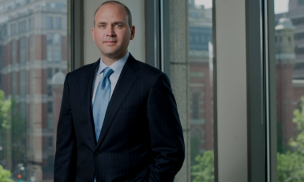“New Law” is generally better than Big Law, according to a new report from the Harvard Business Review.
“Better” means more work-life balance in the case of the entrepreneurial legal ventures that provide innovative new ways to practice law, such as Axiom, which already has half of the Fortune 100 as its clients, and Counsel on Call, which has one third of the business group and employs over 900 lawyers.

The HBR article, written by University of California at Hastings professor Joan Williams, finds there are 5 key New Law models that appear to be winning the day with lawyers in terms of their work choices and their out-of-work choices, too.
The five models include:
1. Secondment, where lawyers work on site with clients
2. Companies combing both legal and business advisory services.
3. Companies called “Accordion companies” that can provide lawyers to law firms needing to beef up their legal armory
4. Virtual law firms that permit lawyers to work from home, and
5. Firms operating on innovative law firm fee structure models.
Professor Hastings writes:
Big Law’s commanding market lead in specific practices areas is also being challenged by boutique firms. A notable example is Bartlit Beck Palenchar & Scott, which handles high-profile trial work; it led the British Petroleum National Oil Spill Commission for the Obama administration. Other examples include Landmark Law Group (real estate), Smithline PC (tech transactions and IP licensing), Miller Law Group (defense-side employment law), Valorem Law Group (complex litigation), and The California Appellate Group (appellate).
Relatively routine legal work of the sort that used to keep first- and second-year associates busy at large law firms is also migrating away. The behemoth of “legal process outsourcing” is Axiom, which has commodified large companies’ contracting and certain litigation functions. Counsel on Call does e-discovery, contract review and abstraction, and other managed services, Raymond Law Group specializes in “price-sensitive commodity (litigation) work”). For a fixed fee, The General Counsel, Ltd will handle all of a company’s employment law matters.
Secondment Firms handle overflow from in-house legal departments and part time in-house counsel work for companies too small to need a full time General Counsel. The first step was that a lot of legal work formerly done by outside counsel migrated to in-house corporate legal departments. Now even the overflow work from in-house departments has migrated away from Big Law, too.
Last but not least, some New Law firms target the small or mid-market companies that may have been priced out by the steep rise in Big Law rates. Examples are The Mitzel Group LLP, Phillips & Reiter, PLLC, InnovaCounsel, LLP, Avökka, The General Counsel, Limited, Exemplar Companies, Inc., Burton Law LLC.) (Some of these target large companies as well.)
All this adds up to a sobering picture that helps explain why Big Law’s book of business is no longer growing by leaps and bounds. “While the … revenue that is actually being siphoned off by these non-traditional service providers still seems modest compared to the overall size of the legal market,” noted influential legal commentator James Jones, “they’re growing and they’re growing every single year.” Big Law used to do the entire spectrum of legal work, from low- to high-complexity. Now “the unbundling taking place in the corporate legal market” means that the “’fat middle’ of ‘meat and potatoes’ legal work” is being siphoned off, much of it to New Law. It’s classic disruption.
So here’s the real story. Big Law attorneys are notably unhappier than most other lawyers, for a variety of reasons. Far and away the most common one given by the Big Law refugees who have founded New Law companies is the desire for work-life balance.
Recent research suggests that what Big Law offers—one-off individual accommodation policies—are not effective. Typically, the people who use them suffer the worst of both worlds – they’re stigmatized, but find themselves working full time for part-time pay. What New Law offers is what leading researchers now agree is a more promising formula: they hard-bake work-life balance into the business model.
Source: Harvard Law Review






Comments are closed.